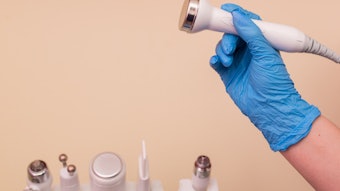The Cosmetic, Toiletry, and Fragrance Association (CTFA) announced today that it has filed comprehensive comments with the Food and Drug Administration (FDA) on the science and regulation of nanoparticles in personal care products. CTFA comments, which can be found at www.ctfa.org, specifically address issues raised in a petition filed with the FDA earlier this year on the use of nanotechnology in personal care products, in particular, sunscreen products.
“Nanoparticles in sunscreens are very small particles that have been reviewed and approved by FDA. They have been used safely and effectively by consumers for decades to protect from harmful UV rays and to prevent skin cancer,” said John Bailey, executive vice president for science at CTFA and former FDA official. “These ingredients have properties that provide a greater degree of protection from the sun, are transparent when applied and aesthetically pleasing, and therefore encourage greater consumer acceptance.”
The nanoparticles in sunscreens, titanium dioxide and zinc oxide, are established, efficacious sunscreen filters that have been on the market for decades. In 1996, FDA concluded that smaller, micronized particles of titanium dioxide are not new substances and that there is no evidence demonstrating that these micronized particles are unsafe. Nano-sized titanium dioxide and zinc oxide, unlike the larger particle size ingredient, form a transparent rather than a thick, white coating, which leads to greater consumer acceptance and use of sunscreen products, and therefore greater protection from skin cancer and other damaging effects of the sun. The same improvement in formulation esthetics also applies to the use of these materials in cosmetics.
“Nanoparticle ingredients in personal care products sit on top of the skin, are used in small amounts, and are not absorbed into the body. The general scientific consensus is that there is no risk to human health. But we don’t rest on this knowledge alone,” Bailey said. “We take the science of safety very seriously, and that is why we review the latest and most comprehensive scientific research, including nanotech research, before bringing a product to market.”
According to widely accepted independent research studies, the size of these nanoparticles does not make them inherently different in terms of toxicity or impact on human health than larger particles. It is also important to note that humans have long been exposed to some types of nanoparticles in the atmosphere such as smoke from candles, fireplaces and other sources.
In the case of the sunscreen ingredients zinc oxide and titanium dioxide, the overwhelming weight of the scientific evidence states that these substances are safe and non-toxic, including when used in cosmetics and sunscreens.
Authoritative bodies that have thoroughly reviewed titanium dioxide and zinc oxide include:
- The FDA:
Concluded that these substances are safe for use in cosmetics. Titanium dioxide has been approved for use as a color additive in food, drugs, cosmetics, and contact lenses. Zinc oxide is approved for use as a food ingredient, a color additive in drugs and cosmetics, and as a protectant for injured skin.
Concluded that these substances are safe for use in OTC drug products, including sunscreens, skin protectants, and other products.
- The Scientific Committee for Cosmetic Products in the European Union:
Considered more than 100 titanium dioxide safety studies and concluded that these substances are safe for use in cosmetics.
- Germany BfR, Federal Agency for Risk Assessment:
In 2006, reviewed these two substances and found that the nanoparticles did not penetrate the skin, and that the biological properties of the nanoparticles were not necessarily different from those of larger particles.
- The Australian government Department of Health and Aging:
In 2006, published a comprehensive review of the science on zinc oxide and titanium dioxide and found no evidence that sunscreens containing these materials in nanoparticle form pose any risk.
“The FDA has broad authority to ensure that personal care products and ingredients utilizing nanotechnology are safe for consumers and has consistently exercised that authority,” CTFA’s Bailey added. “Sunscreens, some of which utilize sun-protecting nanoparticles, are required to go through an extensive pre-market review process to prove they are safe and effective.”
The FDA comprehensively regulates the safety of consumer health products. Under the Federal, Food, Drug, and Cosmetic Act (FFDCA), FDA has erected a complex and comprehensive regulatory system to safeguard the public health. This regulatory system has worked to ensure that, among other things, the food eaten by US consumers, the medical technology used by physicians and patients, and the personal care products used by countless citizens are among the safest in the world.
Based in Washington, D.C., CTFA is the trade association representing the cosmetic, toiletry, and fragrance industry in the United States and globally. Founded in 1894, CTFA has a membership of approximately 600 companies including manufacturers, distributors, and suppliers of the vast majority of finished personal care products marketed in the United States.









